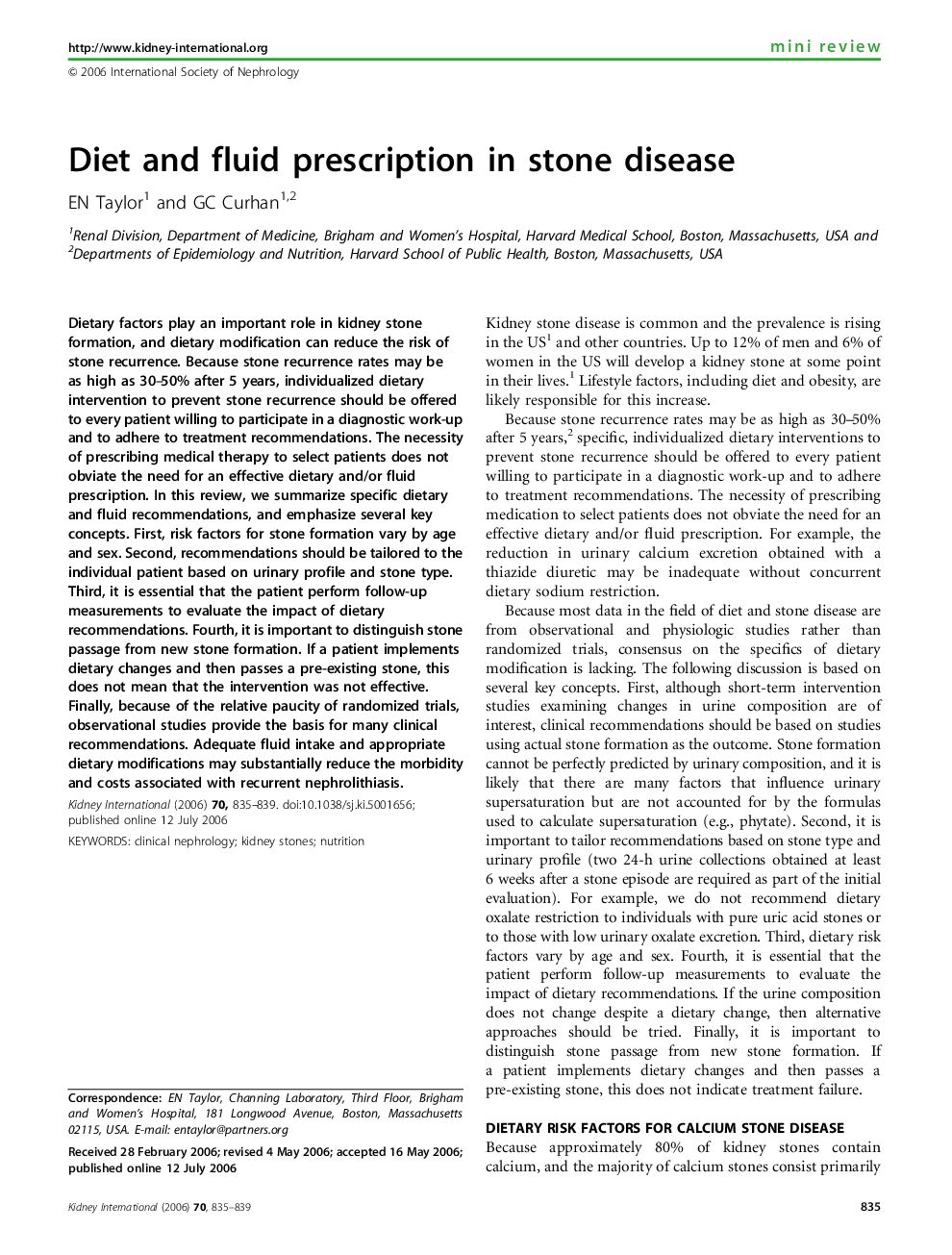| Article ID | Journal | Published Year | Pages | File Type |
|---|---|---|---|---|
| 3889612 | Kidney International | 2006 | 5 Pages |
Dietary factors play an important role in kidney stone formation, and dietary modification can reduce the risk of stone recurrence. Because stone recurrence rates may be as high as 30–50% after 5 years, individualized dietary intervention to prevent stone recurrence should be offered to every patient willing to participate in a diagnostic work-up and to adhere to treatment recommendations. The necessity of prescribing medical therapy to select patients does not obviate the need for an effective dietary and/or fluid prescription. In this review, we summarize specific dietary and fluid recommendations, and emphasize several key concepts. First, risk factors for stone formation vary by age and sex. Second, recommendations should be tailored to the individual patient based on urinary profile and stone type. Third, it is essential that the patient perform follow-up measurements to evaluate the impact of dietary recommendations. Fourth, it is important to distinguish stone passage from new stone formation. If a patient implements dietary changes and then passes a pre-existing stone, this does not mean that the intervention was not effective. Finally, because of the relative paucity of randomized trials, observational studies provide the basis for many clinical recommendations. Adequate fluid intake and appropriate dietary modifications may substantially reduce the morbidity and costs associated with recurrent nephrolithiasis.
